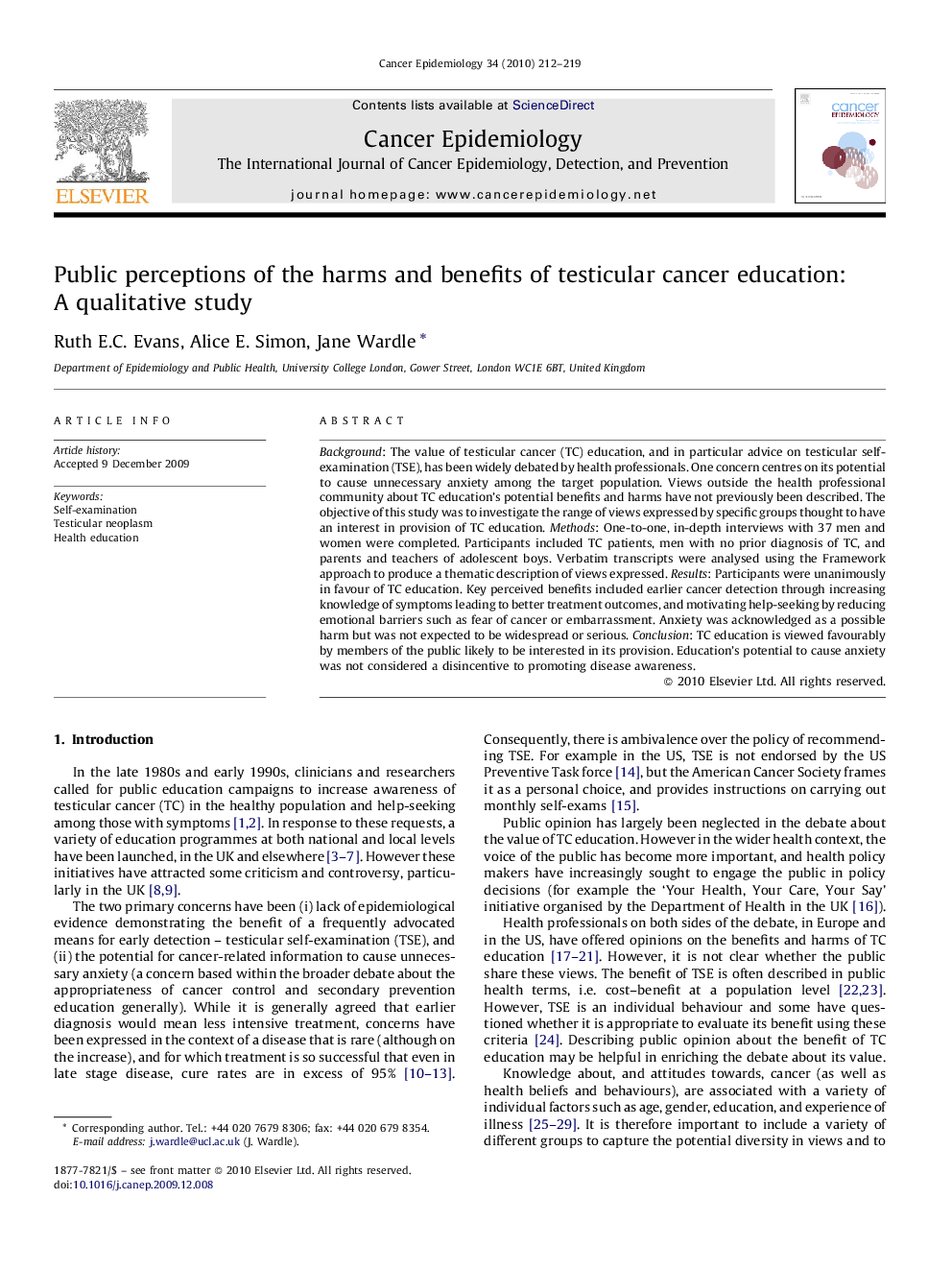| کد مقاله | کد نشریه | سال انتشار | مقاله انگلیسی | نسخه تمام متن |
|---|---|---|---|---|
| 2109364 | 1083871 | 2010 | 8 صفحه PDF | دانلود رایگان |

Background: The value of testicular cancer (TC) education, and in particular advice on testicular self-examination (TSE), has been widely debated by health professionals. One concern centres on its potential to cause unnecessary anxiety among the target population. Views outside the health professional community about TC education's potential benefits and harms have not previously been described. The objective of this study was to investigate the range of views expressed by specific groups thought to have an interest in provision of TC education. Methods: One-to-one, in-depth interviews with 37 men and women were completed. Participants included TC patients, men with no prior diagnosis of TC, and parents and teachers of adolescent boys. Verbatim transcripts were analysed using the Framework approach to produce a thematic description of views expressed. Results: Participants were unanimously in favour of TC education. Key perceived benefits included earlier cancer detection through increasing knowledge of symptoms leading to better treatment outcomes, and motivating help-seeking by reducing emotional barriers such as fear of cancer or embarrassment. Anxiety was acknowledged as a possible harm but was not expected to be widespread or serious. Conclusion: TC education is viewed favourably by members of the public likely to be interested in its provision. Education's potential to cause anxiety was not considered a disincentive to promoting disease awareness.
Journal: Cancer Epidemiology - Volume 34, Issue 2, April 2010, Pages 212–219